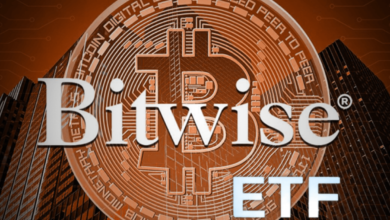
Bitcoin Private Equity News Updates Latest Investment Trends & Market Analysis 2025
The world of Bitcoin private equity continues to evolve rapidly, with Bitcoin private equity news updates revealing significant shifts in investment patterns and market dynamics throughout 2025. As institutional adoption accelerates and regulatory frameworks become clearer, private equity firms are increasingly recognizing Bitcoin’s potential as a cornerstone asset in their portfolios.
Recent developments show that while traditional venture capital funding in the crypto space experienced fluctuations, Bitcoin-specific investments are demonstrating remarkable resilience and growth potential. The landscape of Bitcoin private equity has transformed dramatically since the early days when Pantera Capital launched the first cryptocurrency fund in the United States at $65 per Bitcoin in 2013.
Today’s market presents both unprecedented opportunities and unique challenges for private equity investors navigating the digital asset ecosystem. From Trump’s recent executive order opening doors for 401(k) investments in private equity and cryptocurrency to the evolving regulatory environment, these factors are reshaping how institutional investors approach Bitcoin-focused private equity strategies.
Current Market Landscape Bitcoin Private Equity News Updates
Recent Investment Trends and Market Performance
In 2024, private equity deals in blockchain amounted to nearly $3 billion, down 27% annually and continuing a multiyear decline, according to S&P Global Market Intelligence data. However, this broader decline masks significant activity specifically in Bitcoin-related ventures and private equity opportunities.
The number of pre-seed transactions in the bitcoin startup market climbed 50% in 2024, according to a report from Trammell Venture Partners. This indicates that while overall blockchain private equity may be experiencing headwinds, Bitcoin-specific opportunities are attracting increased attention from sophisticated investors.
The dichotomy between general crypto venture capital performance and Bitcoin-focused private equity reflects a maturing market where investors are becoming more discerning about their digital asset exposures. Crypto VC funding reached $4.8 billion in Q1 2025, the highest since Q3 2022. This surge demonstrates renewed confidence in the sector, particularly among institutional investors seeking exposure to Bitcoin through private equity vehicles.
Regulatory Developments Shaping Bitcoin Private Equity
The regulatory landscape has experienced significant shifts that directly impact Bitcoin private equity news updates. Millions of Americans saving for retirement through 401(k) accounts could have the option of putting their money in higher-risk private equity and cryptocurrency investments, according to an executive order signed Thursday by President Donald Trump.
This development represents a watershed moment for Bitcoin private equity, as it potentially opens access to trillions of dollars in retirement savings that could flow into private equity funds with Bitcoin exposure. The implications extend far beyond individual retirement accounts, signaling a broader institutional acceptance of Bitcoin as a legitimate asset class within private equity portfolios.
The regulatory clarity emerging in the United States is particularly significant for private equity firms structuring Bitcoin-focused funds. Improving regulatory clarity in the United States may push Bitcoin past $150,000 during the current market cycle, according to Alice Li, investment partner and head of US at crypto venture capital firm Foresight Ventures. This optimistic outlook reflects how regulatory developments are influencing private equity investment strategies and asset valuations.
Bitcoin Private Equity Investment Strategies in 2025

Direct Bitcoin Holdings vs. Bitcoin Adjacent Investments
Modern Bitcoin private equity strategies encompass various approaches to gaining exposure to the digital asset ecosystem. Direct Bitcoin holdings represent the most straightforward method, where private equity funds allocate portions of their portfolios to Bitcoin itself. This strategy has gained legitimacy as institutional infrastructure has developed, including custody solutions, insurance products, and regulatory compliance frameworks.
Bitcoin-adjacent investments represent another significant category within Bitcoin private equity news updates. These investments focus on companies building infrastructure, services, or products that benefit from Bitcoin’s growth without directly holding the cryptocurrency. Examples include mining operations, custody providers, payment processors, and financial services companies integrating Bitcoin capabilities.
The venture capital arm of Bitcoin private equity has shown particular strength in 2025. PitchBook forecasts that crypto VC funding will surpass $18 billion in 2025, nearly doubling the $9.9 billion annual average from the 2023 to 2024 cycle. This projection suggests that private equity firms are increasingly confident in Bitcoin and blockchain technology’s long-term prospects.
Portfolio Diversification and Risk Management
Bitcoin private equity firms are implementing sophisticated portfolio diversification strategies to manage volatility while maximizing exposure to Bitcoin’s upside potential. These approaches include geographic diversification across different regulatory jurisdictions, sector diversification within the Bitcoin ecosystem, and temporal diversification through staged investment approaches.
Risk management protocols have evolved significantly as Bitcoin private equity has matured. Modern funds implement comprehensive due diligence processes, advanced custody solutions, and sophisticated hedging strategies to protect investor capital while maintaining upside exposure. These developments are crucial components of current Bitcoin private equity news updates, as they demonstrate the institutionalization of Bitcoin investment practices.
The correlation between Bitcoin prices and private equity performance has become a key focus area for fund managers. The latest numbers from Galaxy Research show crypto venture capital just had its slowest quarter in five years, with under $2 billion flowing into the sector in Q2 2025. This data point illustrates how market cycles influence private equity investment flows and decision-making processes.
Major Players and Fund Performance
Leading Bitcoin Private Equity Firms
The Bitcoin private equity landscape features several prominent players who have established track records in the space. Pantera Capital remains one of the most recognized names, having pioneered institutional Bitcoin investing. Since 2013, Pantera has invested in digital assets and blockchain companies, providing investors with the full spectrum of exposure to the space.
Other significant players include firms like Foresight Ventures, which focuses on long-term Bitcoin and blockchain investments, and newer entrants who are bringing traditional private equity expertise to the Bitcoin ecosystem. The competitive landscape continues to evolve as more institutional investors recognize Bitcoin’s potential within private equity portfolios.
The performance metrics of Bitcoin private equity funds vary significantly based on their investment strategies, timing, and risk management approaches. Funds that entered the market during Bitcoin’s early stages have generally outperformed those with more recent vintage years, though this trend may shift as Bitcoin achieves greater market maturity and price stability.
Emerging Fund Structures and Investment Vehicles
Innovation in fund structures represents a significant aspect of recent Bitcoin private equity news updates. Traditional closed-end private equity funds are being supplemented by evergreen fund structures that provide greater liquidity and flexibility for investors. These new structures address some of the traditional challenges associated with private equity investments while maintaining exposure to Bitcoin’s long-term growth potential.
Token-based investment vehicles represent another frontier in Bitcoin private equity innovation. These structures allow for more granular exposure to specific aspects of the Bitcoin ecosystem while maintaining the professional management and due diligence associated with traditional private equity approaches.
The development of secondary markets for Bitcoin private equity investments has also gained traction. These markets provide liquidity options for investors while allowing funds to optimize their portfolio management strategies. The growth of these secondary markets is a key trend within Bitcoin private equity news updates, as it demonstrates increasing market sophistication and investor demand.
Market Analysis and Future Outlook
Technical Analysis and Price Projections
The relationship between Bitcoin’s price performance and private equity investment flows has become increasingly sophisticated. Technical analysis now plays a significant role in private equity investment timing and portfolio allocation decisions. Many funds employ quantitative models that incorporate Bitcoin’s price cycles, market sentiment indicators, and macroeconomic factors to optimize their investment strategies.
Current market analysis suggests that Bitcoin’s institutional adoption cycle is still in its early stages, providing significant opportunities for private equity investors. The development of Bitcoin exchange-traded funds, corporate treasury adoption, and potential sovereign wealth fund allocations all contribute to a positive long-term outlook for Bitcoin private equity investments.
Price projections for Bitcoin continue to influence private equity investment strategies. “One of the strongest drivers is definitely the policy change,” she said, referencing US President Donald Trump’s Bitcoin reserve approval and stablecoin policy developments as the main catalysts for Bitcoin (BTC) price movements. These policy developments create tailwinds for Bitcoin private equity performance.
Institutional Adoption Trends
The institutional adoption of Bitcoin through private equity vehicles has accelerated significantly in 2025. Large pension funds, endowments, and insurance companies are increasingly allocating capital to Bitcoin private equity funds as a hedge against currency debasement and inflation. This trend represents a fundamental shift in how institutional investors view Bitcoin’s role within diversified portfolios.
Corporate adoption of Bitcoin continues to influence private equity investment strategies. Companies adding Bitcoin to their treasury reserves create ecosystem effects that benefit Bitcoin-focused private equity investments. The network effects of corporate adoption extend beyond direct Bitcoin holdings to encompass the entire ecosystem of Bitcoin-related services and infrastructure.
The international dimension of Bitcoin private equity is also expanding rapidly. Funds are increasingly looking beyond traditional investment geographies to identify opportunities in emerging markets where Bitcoin adoption is accelerating. This global perspective is becoming essential for Bitcoin private equity funds seeking to maximize their exposure to Bitcoin’s worldwide growth potential.
Investment Opportunities and Challenges

Emerging Sectors Within Bitcoin Private Equity
The Bitcoin ecosystem continues to evolve, creating new investment opportunities for private equity firms. Mining operations represent one of the most established sectors, with funds investing in mining equipment, facilities, and operations. These investments provide direct exposure to Bitcoin’s security infrastructure while generating cash flows from mining rewards.
Financial services built on Bitcoin infrastructure represent another growing sector for private equity investment. This includes custody providers, payment processors, lending platforms, and insurance companies focused on Bitcoin-related risks. These businesses benefit from Bitcoin’s growth while providing essential services to the expanding ecosystem.
Infrastructure investments within the Bitcoin space have gained significant attention from private equity firms. This includes investments in Lightning Network infrastructure, Bitcoin development tools, and hardware wallet manufacturers. These investments often provide leveraged exposure to Bitcoin adoption while addressing critical infrastructure needs.
Risk Assessment and Mitigation Strategies
Risk assessment within Bitcoin private equity has become increasingly sophisticated as the market has matured. Regulatory risk remains a primary concern, though recent developments have provided greater clarity in many jurisdictions. Private equity firms are implementing comprehensive regulatory monitoring systems to track potential changes that could impact their investments.
Technology risk represents another significant factor in Bitcoin private equity investment decisions. The rapid pace of technological development in the Bitcoin ecosystem creates both opportunities and risks for private equity investors. Firms are investing in technical due diligence capabilities and maintaining relationships with technical advisors to navigate these challenges.
Market risk management has evolved beyond traditional volatility metrics to encompass Bitcoin-specific factors such as hash rate fluctuations, network upgrades, and ecosystem development milestones. Private equity firms are developing specialized expertise in these areas to better assess and manage their Bitcoin exposures.
Regulatory Environment and Compliance
Current Regulatory Framework
The regulatory environment surrounding Bitcoin private equity has experienced significant evolution throughout 2025. The Securities and Exchange Commission has provided clearer guidance on how Bitcoin investments within private equity funds should be structured and disclosed. This clarity has reduced compliance uncertainty and encouraged greater institutional participation in Bitcoin private equity.
Anti-money laundering and know-your-customer requirements for Bitcoin private equity funds have become more standardized across jurisdictions. Private equity firms are implementing comprehensive compliance programs that address both traditional private equity regulations and Bitcoin-specific requirements. These programs represent significant operational investments but are essential for institutional investor participation.
Tax treatment of Bitcoin within private equity structures has also received greater regulatory clarity. The IRS has issued guidance on various aspects of Bitcoin taxation within private equity contexts, including treatment of mining income, staking rewards, and capital gains recognition. This clarity has simplified fund structuring and investor reporting requirements.
International Regulatory Developments
International regulatory coordination on Bitcoin private equity has improved significantly in 2025. The Financial Action Task Force has provided updated guidance on how different jurisdictions should regulate Bitcoin investment vehicles, creating greater harmonization across borders. This development has facilitated cross-border investment flows and reduced compliance complexity for international Bitcoin private equity funds.
European Union developments in Bitcoin regulation have particular significance for private equity firms with international operations. The Markets in Crypto-Assets regulation provides a comprehensive framework for Bitcoin investment products, including private equity vehicles. This regulatory certainty has encouraged European institutional investor participation in Bitcoin private equity.
Asian regulatory developments continue to influence global Bitcoin private equity strategies. Several Asian jurisdictions have implemented favorable regulatory frameworks for Bitcoin investment vehicles, creating opportunities for private equity firms to establish operations in these markets. The regulatory arbitrage opportunities created by differing international approaches continue to influence fund structuring decisions.
Technology and Innovation Trends
Blockchain Infrastructure Investments
Private equity investment in blockchain infrastructure supporting Bitcoin has accelerated throughout 2025. These investments focus on scaling solutions, security enhancements, and user experience improvements that benefit the broader Bitcoin ecosystem. Layer 2 solutions, including Lightning Network implementations, represent a significant focus area for private equity firms.
Custody technology investments have become increasingly important within Bitcoin private equity portfolios. As institutional adoption accelerates, the demand for sophisticated custody solutions has grown exponentially. Private equity firms are investing in companies developing multi-signature solutions, hardware security modules, and institutional-grade custody platforms.
Development tools and software infrastructure represent another growing investment category within Bitcoin private equity. These investments support the developer ecosystem building applications and services on Bitcoin, creating network effects that benefit the entire ecosystem. Private equity firms recognize that robust developer tooling is essential for Bitcoin’s long-term growth and adoption.
Artificial Intelligence and Bitcoin Synergies
The intersection of artificial intelligence and Bitcoin has emerged as a significant theme within Bitcoin private equity news updates. AI applications in Bitcoin trading, portfolio management, and risk assessment are attracting private equity investment. These technologies have the potential to enhance investment performance while reducing operational complexity.
Machine learning applications in Bitcoin mining optimization represent another investment focus area. Private equity firms are investing in companies developing AI-powered mining pool management, energy optimization, and hardware efficiency improvements. These investments provide exposure to Bitcoin’s security infrastructure while leveraging advanced technology capabilities.
Predictive analytics applications for Bitcoin market analysis have also attracted private equity attention. Companies developing sophisticated models for Bitcoin price prediction, market sentiment analysis, and risk assessment are receiving significant private equity investment. These tools enhance investment decision-making capabilities across the Bitcoin ecosystem.
Also Read: Latest Bitcoin Regulatory News Updates Trump Administration Changes
Conclusion
The landscape of Bitcoin private equity continues to evolve at an unprecedented pace, with Bitcoin private equity news updates revealing both challenges and opportunities for sophisticated investors. As regulatory frameworks solidify and institutional adoption accelerates, private equity funds focused on Bitcoin are positioning themselves to capitalize on what many consider the early stages of a transformative asset class adoption cycle.
The convergence of favorable regulatory developments, institutional demand, and technological innovation creates a compelling environment for Bitcoin private equity investment. From Trump’s executive order opening retirement account access to private equity and cryptocurrency investments to the growing sophistication of Bitcoin infrastructure companies, the fundamental drivers supporting Bitcoin private equity remain robust.
For investors seeking exposure to Bitcoin through professionally managed private equity vehicles, staying informed about the latest Bitcoin private equity news updates is essential for making informed investment decisions. The sector’s rapid evolution requires continuous monitoring of regulatory developments, market trends, and investment opportunities to maximize potential returns while managing associated risks.







